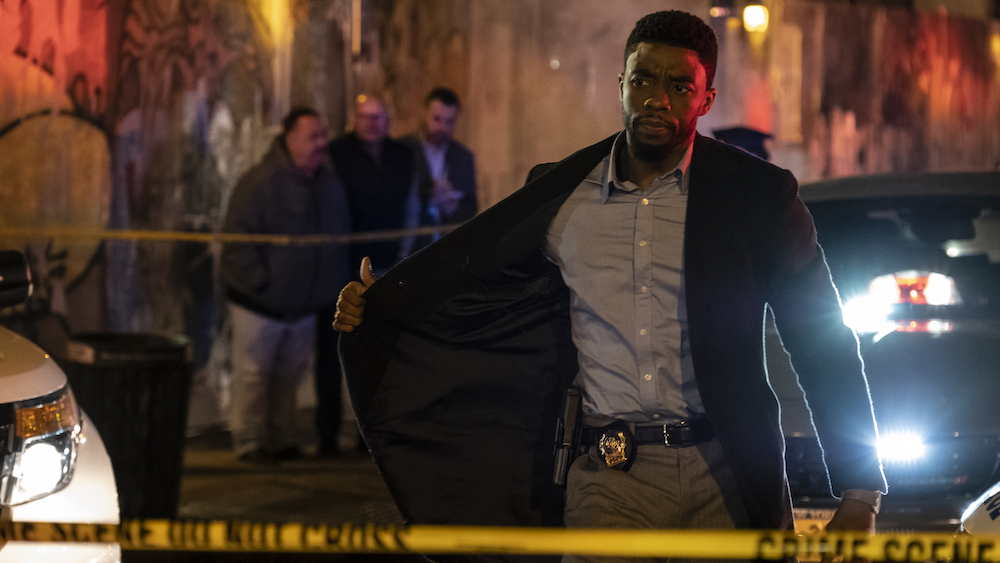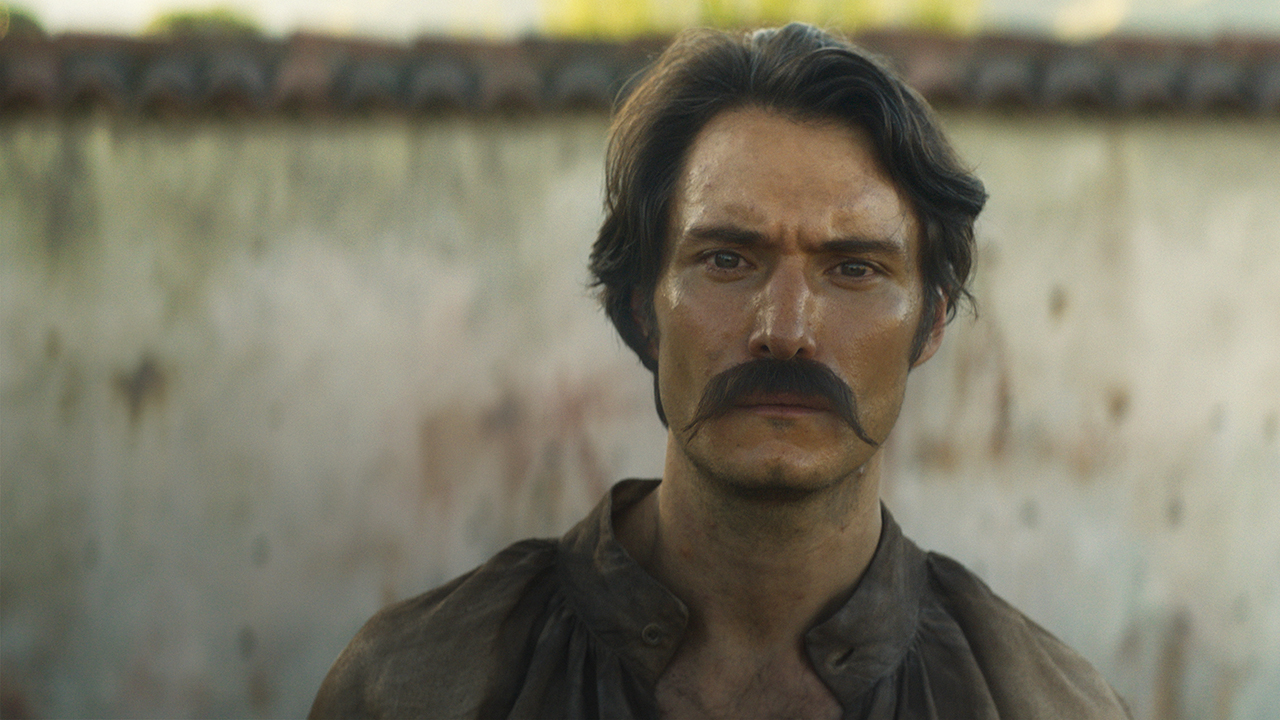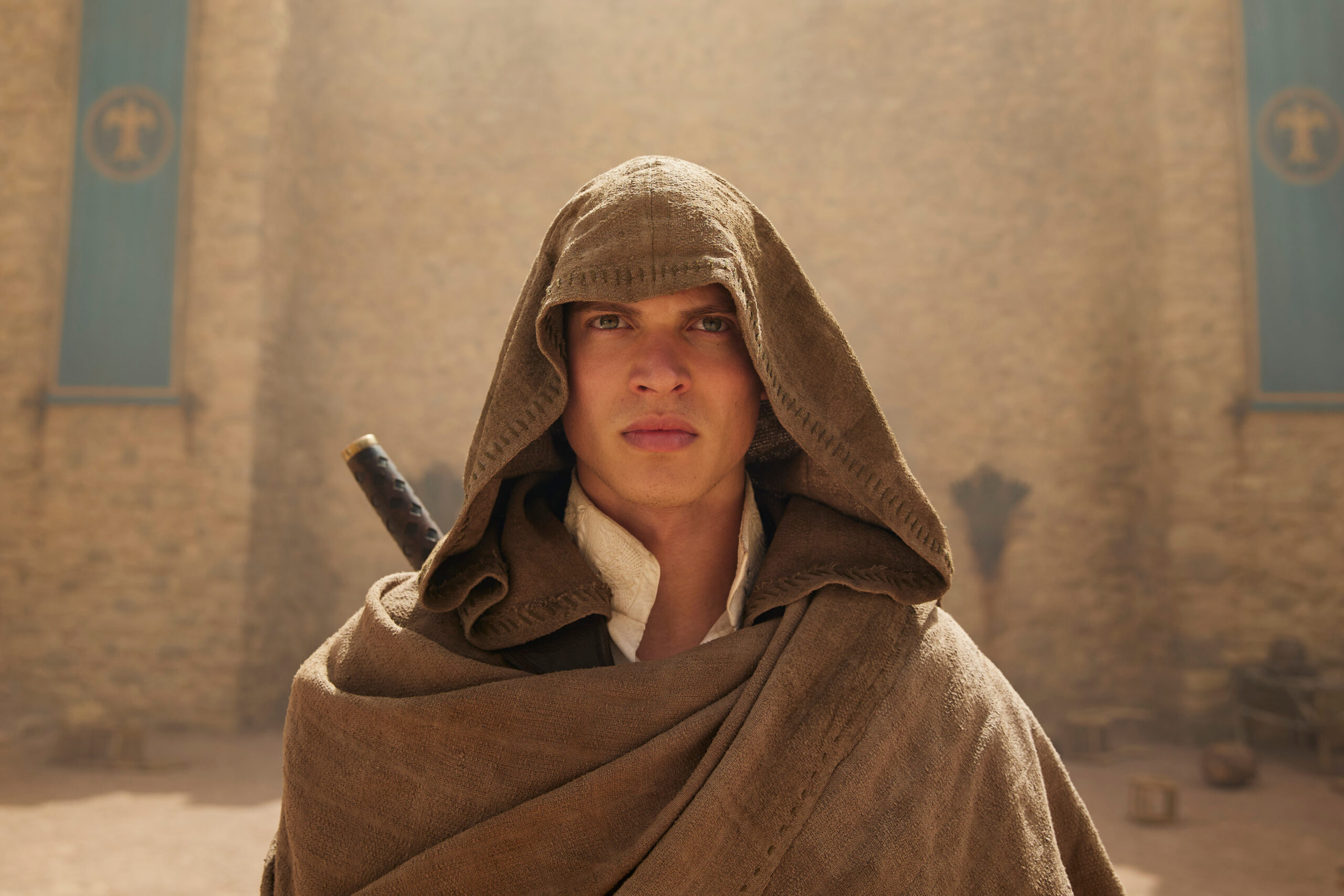There is no escape for cop killers.
In Chadwick Boseman’s major film after Avengers: End Game and Black Panther, Boseman plays an NYPD detective in 21 Bridges. The film is about a citywide manhunt for a pair of cop killers as the authorities trap them in Manhattan after closing all the bridges to prevent entry and exit from the island.
The film also stars Sienna Miller, J.K. Simmons, Stephan James, Taylor Kitsch, and Keith David. It is directed by Brian David (Game of Thrones, Luther) from a screenplay written by Adam Mervis (The Philly Kid) and Matthew Michael Carnahan (World War Z, Lions for Lambs).
LRM Online sat down exclusively with director Brian Kirk on his experiences in the massive production of 21 Bridges.
21 Bridges is now playing in theaters today.
Read the exclusive interview below.
LRM: Online: What brought you on board? Why were you attracted to 21 Bridges?
Brian Kirk: Initially, the Russos bought the spec. They asked me to take a look at it. I was drawn towards the manhunt story. Weirdly, I was similarly developing two other manhunt movies. It must speak deep inside me that I wanted to do and to investigate. The fact that a man is set to kill another man and eventually discovers the humanity of that person. I felt it was an original twist on the story with a classic theme.
The big sort of entry point of the core concept was attractive — the idea of a manhunt that shuts down a city, mainly when that city is New York. In the real world experience, the city experienced 9/11. In the movie world, it has been the home to countless classic crimes thrillers. I was sort of keen to make a film in that family and in that space.
That sense of police invaded as the forces of law and order were something that I understood intimately as having grown up in Northern Ireland as a kid. I was very used to seeing troops on the street and helicopters in the air. It just pushed a button inside me that had to respond to.
LRM Online: Now the cast has to go through a lot of preparations for a film like this. How about you? What kind of developments you had to go through to try to bring this into reality?
Brian Kirk: The first thing was to dig into the story and make sure that I could find myself in a way that would give me the authority to tell it. That’s addressed the things that I’ve already discussed with you. The second thing was to lift the hood, climb inside, and figure out the reality of that situation. It involved a lot of time with ex-NYPD officers. I’ve observed on what they did and what would occur in the reality of these situations at any given time. We’ve collected tons and tons of anecdotes from them. We’ve collected language from them. We’ve collected behavior from them. That allowed to drip feed into the script.
I also spent a lot of time with Chadwick. One of the things I wanted to do was allow him to create his first great post-Black Panther their role. To do that, I felt we needed to tackle the movie to him. We needed to tailor the character to him that allow him to express himself personally in a way that he hadn’t done before.
The journey could be the story. To tell that story, the journey can be A or B, which resonates more deeply with you? It’s picking it and unpacking it to personalize at every level.
LRM Online: Tell me about recreating Philadelphia into New York City. Was it much easier to shut down city blocks? [Laughs]
Brian Kirk: The big scale shutdown sequence that you see at the end of act one where Chadwick says are 21 bridge in and out of Manhattan. He goes through that speech, and you’ll see the city fold in. That was all done in New York because that can’t be cheated.
Things like the opening shootout or the foot chase at the end of act two were done in Philadelphia for practical reasons. Philadelphia is not as filmed as New York. It’s not as restrictive there. It’s more easy to can permits. You can close on three or four blocks at the time in a way that can’t do that in Manhattan anymore. There are so many film and television productions shooting there.
About ten years ago, I worked on season one of Boardwalk Empire, and at that time in New York was not as busy. You could get permission to do pretty much anything and anywhere you wanted. Now that’s not the case because there are so many film crews working in and around the city. Sometimes you’ll find two crews shooting in the same three, four blocks of each other. You can’t get permits to do big scale violent action sequences at night.
LRM Online: Speaking of nighttime shoots, does that make it easier or more difficult for you?
Brian Kirk: It makes is more difficult personally. It makes it easier logistically. On a personal level, Chadwick was talking yesterday about what happens to your body after having weeks of night shoots when you never really get to sleep. The fact replicates for the actor on a physiological or biological level of the reality of police work where those guys work a case, and they work for three or four days straight. That’s the sort of halt space where you’re going to get a result. We’d spent some time in Brooklyn with homicide. You’ll see these little rooms with cops in them where these guys spend more time than they do with their husbands or wives.
When a case is at its most peak phase, that intense sleep deprivation over a protracted period of weeks seeped into the performances and helped create a reality. Unlike most movies, we shot the beginning of the story at the beginning, and we shot at the end of the story at the end. That was due to create a schedule on the part of our first assistant director. That meant that the actors had the opportunity to get exhausted in the same rhythm like this, as the story demanded. A logistically, though, it is more comfortable. We couldn’t have commandeered vast amounts of real estate and either Philadelphia or Manhattan in the middle of the day.
LRM Online: With this now nighttime shoot, does it affect you as a director, though?
Brian Kirk: In the same way that it affects everyone. Eight weeks of not sleeping at night are trying. I had the grip department came in and blacked out the bedroom of my apartment so that there was no light coming in whatsoever. It was a black box, and I could go to sleep at any time. When I woke up, I didn’t know what time of the day or night it was. That was sort of essential to getting enough rest.
But, in truth, I was working with a great cast in a super iconic city in New York. When we were shooting in Philadelphia, that place was open and welcoming. It was fun more than anything.
LRM Online: You did a lot of television work. The opportunities of feature films do come by for you. How was that overall experience? So would you like to do more movies?
Brian Kirk: For sure. By hoping and commenting, it’s creating all the other opportunities for me. I’m developing all their movies. There’s a great crossover at the moment. Television has the budgets and are aligning with enormous expansion in the scale of the storytelling. That’s very gratifying. There wasn’t any big shock or step up in that respect.
As you know, I’d worked on that scale in terms of shows like Game of Thrones. The differences are between the more open-ended long-form storytelling and the compressed narrative of movies. As a kid, I fell in love with the film. In my way, watching movies with my dad, I have a very vivid t recollection — that first love with something that you want to hang on.
LRM Online: a lot of people probably joke all the comic book connections with the actors and producers of the film. Are you intimidated by that?
Brian Kirk: I felt lucky, Enabled, and protected. It was great to be making a movie with Joe and Anthony Russo when they are sort of at the top of their game. They command influence and offering a high level of protection. The fact that Chadwick was coming off Black Panther, it’s another movie star. It’s another person who can help you green light a movie. He is also a great actor. Only positives.
LRM Online: Are there 21 bridges in and out of Manhattan?
Brian Kirk: There are more bridges. Only twenty-one bridges that are essential to close. Hence the name.
LRM Online: Excellent! Hey, thank you very much.
Brian Kirk: Thank you. Appreciate it.
21 Bridges is now playing in theaters today.
Source: LRM Online Exclusive

 FOR FANBOYS, BY FANBOYS
Have you checked out LRM Online’s official podcasts and videos on The Genreverse Podcast Network? Available on YouTube and all your favorite podcast apps, This multimedia empire includes The Daily CoG, Breaking Geek Radio: The Podcast, GeekScholars Movie News, Anime-Versal Review Podcast, and our Star Wars dedicated podcast The Cantina. Check it out by listening on all your favorite podcast apps, or watching on YouTube!
Subscribe on: Apple Podcasts | Spotify | SoundCloud | Stitcher | Google Play
FOR FANBOYS, BY FANBOYS
Have you checked out LRM Online’s official podcasts and videos on The Genreverse Podcast Network? Available on YouTube and all your favorite podcast apps, This multimedia empire includes The Daily CoG, Breaking Geek Radio: The Podcast, GeekScholars Movie News, Anime-Versal Review Podcast, and our Star Wars dedicated podcast The Cantina. Check it out by listening on all your favorite podcast apps, or watching on YouTube!
Subscribe on: Apple Podcasts | Spotify | SoundCloud | Stitcher | Google Play




